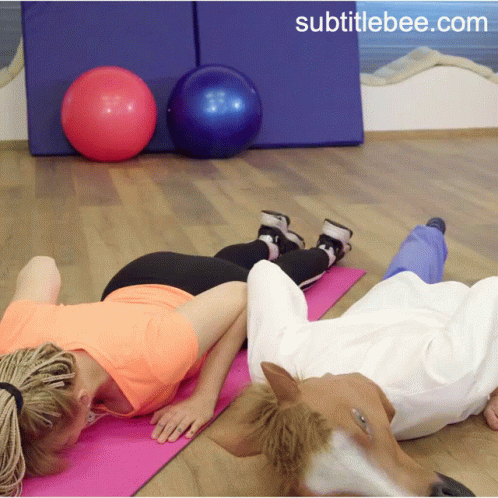Why are people so resistant to exercise?
Why are people so resistant to doing exercise? This is a question we have been pondering here at Simulation Magazine, and we are struggling to come up with answers.

This is a question we have been pondering here at Simulation Magazine, and we are struggling to come up with answers.
Many millions and probably billions of people across the world have developed 21st century habits when it comes to fitness and the awareness of what is good for them as opposed to what they convince themselves is OK.
Before the advent of cars for everyone, the invention of labour-saving equipment for everything and the prevalence of PCs, mobiles, tablets, TVs and gaming devices in our homes, people used to live life very differently.
Walking and running was a commonplace activity practised by most people in their daily lives, and sport was something we learned at school and then carried on with afterwards as a social pastime which also had the benefit of keeping us fit.
Fewer vehicles on the road also meant it was possible to walk around towns and cities as well as the countryside without breathing in lungfuls of polluted air, as we do now.
What we consider to be advancements in society – which usually are things which allow us all to get the benefits of convenience – are sometimes more like laziness inducers which would never have seemed possible by our parents, grandparents and previous generations.
For example, it seems that nowadays the most popular and accessible activity is sitting in front of a TV for hours at a time for the majority of our leisure hours.
Why have these changes caused unhealthy habits?
As western economies have become ever more successful in terms of invention and new consumer products which make our lives easier, momentum has also moved and created an existence for many people, where they are constantly running on an imaginary hamster wheel just to keep up with their lives.
People generally work harder and longer hours than ever before, and suffer stress as well as other workplace induced illnesses, which are partly due to time pressures and the need to earn enough money to pay the mortgage and maintain a lifestyle that they have learned to expect.
The problem with this is that health can suffer as a result of the work and life pressures people are under, both directly and as a result of not having enough time in their lives to think pro-actively about their own health.
Many health conditions are at least partly if not totally caused by lifestyles which are lacking in enough balance of wholesome activities.
For example, if you sit down at a desk all day at work and barely move from your PC, then get in your car and drive home, and then spend any ‘down time’ you may have looking at your mobile phone or a TV screen, that is not going to create a healthy outlook.
Over time the inactivity will mount up and cause at the very least muscle aches and back ache, and at worst weight gain, diabetes, difficulty sleeping, heart problems and other dread diseases which can mount up almost invisibly and insidiously over time.

What can we do to stop the rot?
The first thing to do if you see any of these situations creeping into your life is to take stock and do a mini audit of your lifestyle.
Be honest with yourself and ask yourself if you feel healthy and as fit as you would like.
Review how many hours you spend sitting down, either at work or at home in front of the TV, without getting up and doing some sort of activity which involves stretching and exercising your muscles.
And also look at how healthy your food and drink intake is, and if you think you may be consuming too many calories, or eating the wrong types of foods and drinking sugar laden drinks which only add unnecessary calories as well as rotting your teeth.
Health is vital for our longevity, quality of life, and enjoyment of our retirement and into old age.
People who have self-induced health problems in their life can often prevent these by planning ahead, and making changes – which can be done starting with one tiny step at a time.
Any change you integrate into your life is best done gradually, especially if you want long-term benefits – which is the only sensible way forward.
Sustainable lifestyle changes have to be worked on and if you identify a few small things you want to change, you can get enormous benefits and satisfaction, before moving on to the next changes until you have created a whole new lifestyle which then seems natural to you and the people around you.
You can also help other people (if they want to be helped) by telling them how you have made the changes, and they can join in the benefits and improve their lives too.
So strap that VR headset on and take regular mini fitness breaks, because as more multiplayer fitness games become the norm, you can get your friends involved.
So set a daily time to come together, and hit full send !
Listen to an audio version of this article 👇






